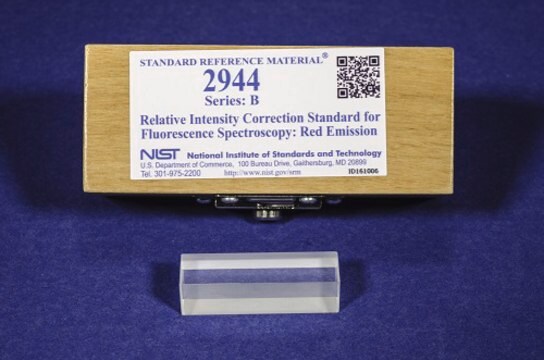3020
Transcreener® AMP2/GMP2 TR-FRET Assay
Synonym(s):
TR-FRET assay, Transcreener assay
Sign Into View Organizational & Contract Pricing
All Photos(1)
About This Item
UNSPSC Code:
41122100
NACRES:
NA.84
Recommended Products
shipped in
dry ice
storage temp.
−20°C
General description
The Transcreener® AMP2/GMP2 TR-FRET Red Assay is a competitive immunoassay for enzymes that produce AMP or GMP with a far-red, time-resolved Förster-resonance-energy-transfer (TR-FRET) readout. The assay relies on a highly specific monoclonal antibody that recognizes AMP or GMP with more than 1,000-fold selectivity over substrate nucleotides, including ATP, cAMP, or cGMP. Enzymes that can be used with the assay include ubiquitin, SUMO, nucleic acid and protein ligases, phosphodiesterases (PDEs), and synthetases. The Transcreener® assay is designed specifically for high-throughput screening (HTS), with a single addition, mix-and-read format. It offers reagent stability and compatibility with commonly used multimode plate readers. The generic nature of the Transcreener® HTS assay platform eliminates delays involved in assay development for new HTS targets and greatly simplifies compound and inhibitor profiling across multiple target families.
The Transcreener® AMP2/GMP2 TR-FRET Red Assay provides the following benefits:
View full Transcreener® product list
The Transcreener® AMP2/GMP2 TR-FRET Red Assay provides the following benefits:
- Accommodates substrate concentrations ranging from 0.1 μM to 1,000 μM.
- Excellent data quality (Z′ = 0.7) at low substrate conversion (typically 10–30%).
- The only assay method that allows detection of unmodified AMP and GMP without using coupling enzymes.
- Overcomes the need for time-consuming, one-off assay development for individual members within a group transfer enzyme family by using a single set of assay reagents that detect an invariant product.
- Time-gated detection method largely eliminates interference that can result from prompt fluorescence of test compounds.
- Far-red tracer further minimizes interference from fluorescent compounds and light scattering.
View full Transcreener® product list
Quantity
3020-1K = 1,000 assay, 384-well
3020-10K = 10,000 assay, 384-well
3020-10K = 10,000 assay, 384-well
Physical form
Kit with buffered aqueous solutions
Legal Information
Transcreener is a registered trademark of BellBrook Labs
Certificates of Analysis (COA)
Search for Certificates of Analysis (COA) by entering the products Lot/Batch Number. Lot and Batch Numbers can be found on a product’s label following the words ‘Lot’ or ‘Batch’.
Already Own This Product?
Find documentation for the products that you have recently purchased in the Document Library.
M Kopani et al.
Bratislavske lekarske listy, 118(10), 575-579 (2017-12-05)
Mobile phone application may cause structural, functional changes and accumulation of toxic elements in brain. The aim of this study was to investigate iron accumulation in rabbit cerebellum after exposure to RF EMF with light and scanning electron microscopy. Histochemical
M J Abramowicz et al.
The Journal of clinical investigation, 99(12), 3018-3024 (1997-06-15)
Thyroid gland agenesis is the most common cause of congenital hypothyroidism and is usually sporadic. We investigated a brother and sister from consanguineous parents, ascertained through systematic newborn screening, and initially diagnosed with thyroid agenesis. Careful cervical ultrasonography in both
Adel Zrein et al.
Canadian journal of physiology and pharmacology, 98(8), 531-540 (2020-08-04)
The endothelin receptor A (ETA) and endothelin receptor B (ETB) are G protein-coupled receptors that are co-expressed in vascular smooth muscle cells. Endothelin-1 (ET-1) activates endothelin receptors to cause microvascular vasoconstriction. Previous studies have shown that heteromerization between ETA and
Larissa Martins et al.
The Journal of dairy research, 87(3), 298-305 (2020-05-14)
We evaluated the effects of chronic subclinical mastitis (CSM) caused by different types of pathogens on milk yield and milk components at the cow level. A total of 388 Holstein cows had milk yield measured and were milk sampled three
Our team of scientists has experience in all areas of research including Life Science, Material Science, Chemical Synthesis, Chromatography, Analytical and many others.
Contact Technical Service







